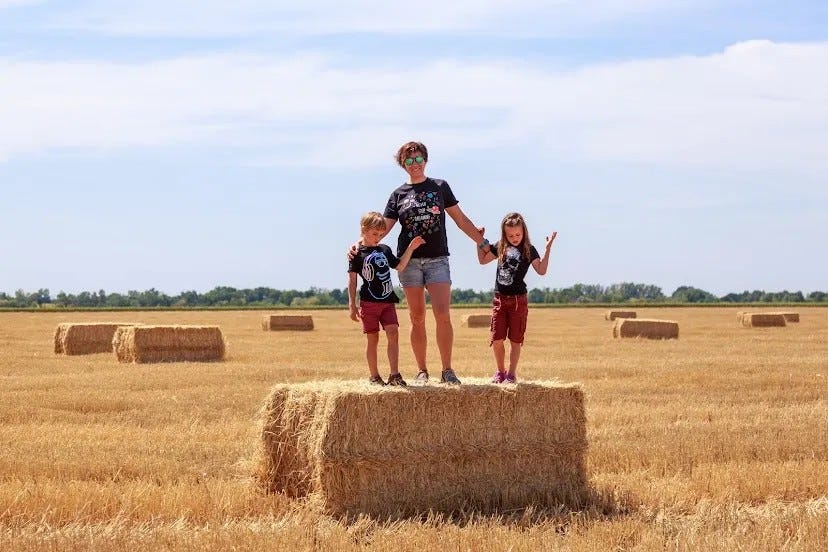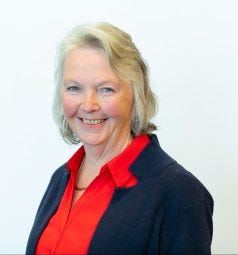'I want to give something back and help people in Edinburgh'
Betrayed by Trump and fearing for loved ones, Ukrainians look to build a better future in the Capital
We all experience the feeling - sands shifting under our feet, all stability gone. Often due to the loss of a loved one, or a job. For Ukrainians, balanced life disappeared when Putin’s tanks rumbled across their Borders.
In the past few days, the sand has shifted alarmingly again, and it has been truly seismic. This time the undermining of their lives and futures has come not from Moscow, but the President of the United States.
As the third anniversary of the invasion is marked on Monday, the thoughts of Ukrainians scattered across Europe will inevitably turn to their homeland. In Scotland’s welcoming Capital, they are safe. Stability remains a more elusive quality of life.
President Donald Trump has pledged to end the war – but his methods have shocked the civilised world. He has turned US support on its head, blamed Ukraine for the war, and accused their war-time President Zelensky of being a “dictator”. He also appears prepared to “reward” Putin’s Russia for the invasion by allowing them to maintain the territory they have grabbed in their bloody war.
“They took a lot of land and fought for that land, and they lost a lot of soldiers,” he has said, an extraordinary choice of words. Ukraine too has suffered many deaths, lives lost defending their home from aggression. Their sacrifice, encouraged and supported by the US and the West for the past three years, went unremarked. For Ukrainians, this feels like betrayal.
Sanctuary in Edinburgh
At city level, support for Ukraine remains steadfast for those who have fled here, with city council leader Jane Meagher expressing pride at how the Capital - which is twinned with Kyiv - had responded to the humanitarian crisis. She has pledged the city would continue to support the Ukrainian community “to the best of our abilities.”
The 24th February 2022 saw many Ukrainians flee their homes in darkness to the accompaniment of sirens and the thud of missile strikes. Many carried all they could in a single backpack, their lives torn apart by the naked aggression of a despot in the Kremlin.
Millions of individual worlds were turned upside down. More than ten million Ukrainians have been displaced, with almost 7 million of those displaced outside Ukraine’s borders and now living within Europe. More than 3 million displaced continue to live within Ukraine’s borders.
Between 30,000 and 40,000 of the 218,000 Ukrainians who now live in the UK arrived via Edinburgh. Around 11,500 were helped by the city’s Ukraine Welcome Hub. More than 3000 now live in 900 households in Edinburgh. In general, they have been made very welcome, and most of them are doing their best to rebuild their lives – even the many who plan to return to their homes when it is safe to do so.
Life must go on, and so children have enrolled in schools, mothers have taken jobs, curtains have been hung. Life has gone on, albeit from month to month.
Hannah Beaton-Hawryluk, Edinburgh Chair of the Association of Ukrainians in Great Britain, said: “The 180 degree turn by US is very frightening as the support that Ukrainians thought they had is now very unsettled. We hope that all the support won't be derailed completely.”
Maryna Ivanova, was living in Kharkiv with her husband and two young children when war broke out. Kharkiv is the second biggest city in Ukraine, in the north east of the country, and comes under constant attack. She fled to Edinburgh with her children.
She had a simple, powerful message for the US President: “Tanks drove down my street; my house shook from explosions. It happens exactly like in the movies, only it is not a film. Those aren’t cardboard props burning; a missile flew into my mum’s kitchen window, and there she is, at seventy years old, left with just her coat and a laptop – exactly what she had with her in the bomb shelter.
“Those aren’t actors pretending to be frightened; it’s my children screaming in terror. Those aren’t extras dramatically falling with fake blood; these are my friends dying from gunshot wounds. Dying for good. Forever. A madman intoxicated by his own impunity is killing them…
“I understand that everyone is tired of the war. War drains the coffers not only of Ukraine but of all the countries that stand on the side of the light in this battle. War pushes up fuel prices, war ages the population, war halts progress. But blaming the victim rather than the aggressor for the war is as insane as starting the war in the first place, is it not?”
Why would President Trump say these things?
Karyna Radchenko is 23 years old. She was amongst the first Ukrainians to arrive in the UK, coming to Edinburgh with her mother and younger sister. They came from Dnipropetrovsk in the east of the country, from the city of Dnipro. Russian soldiers are now within a few kilometres of their region, which is also under constant attack.
She told the Inquirer: “It has been frightening to see the change in the US leadership. We knew if he was elected President, Donald Trump would be less of a friend to Ukraine, but we did not think it would be this bad.
“To hear the leader of the Free World repeat Putin’s propaganda, to say Ukraine started this war, is heart-breaking. To blame our country for being invaded is something we do not understand. The world knows it is not true, so why would he say these things?”
Both women expressed their heartfelt thanks to have found safety and welcome in Edinburgh. With no good end to the war in sight, they also expressed the wish that greater visa security from the UK Government would allow people to move on with their lives. Many still encounter difficulties in obtaining work, renting homes or studying because of the ongoing uncertainty about their status.
Fleeing her home meant Karyna leaving her dream of becoming a doctor behind. She and her family had saved and struggled to send Karina to the respected Dnipro State University to study medicine. Karyna had already qualified as a nurse and paramedic.
She tried to keep that aspiration alive joining online classes, and at one point returned to Ukraine to continue her studies for several months. In May 2023 she was in Dnipro, learning in a hospital, when a missile struck a medical clinic nearby, killing two and injuring dozens. Her mother Natalie, seeing social media footage in an Edinburgh coffee shop, collapsed in shock. Karyna was in another hospital the same day, a short distance away. Many of her colleagues were in the clinic that was struck.
She returned to Scotland a few weeks later. She has started out all over again, studying here to become a nurse after struggling to have her hard-won existing qualifications confirmed through Ukraine’s wartime bureaucracy. This despite the fact that the university she attended is recognised by the UK education authorities. She studies full-time and also works part-time in a shop. Days off are a rarity.
“I have grown to love Edinburgh. It is a beautiful city, and the people here are very friendly. We feel safe here, and welcome. I am very glad that we came to Scotland.
“I am working hard to qualify again as a nurse. I have always wanted to work looking after people. Now, after so many people have helped us, I definitely want to give something back and do a job where I can help people here. It is my new dream.”
Giving something back to Scotland is a new dream
Maryna added: “We see how we are supported by all reasonable countries, the first of which is the United Kingdom. Edinburgh gave me refuge; the Scottish people helped me get back on my feet. A remarkable nation - strong, proud, and kind. Here I learnt what true help and support really mean. And we refugees continue to believe in your help and rely on your support. And we, in turn, could give so much to the country that has taken us.”
She added that Ukrainian refugees, many of them qualified in professions sorely needed in Scotland, are keen to work and contribute. “Hard work is in our blood.”
She is concerned that many still find difficulty in renting, gaining long-term work, and can’t plan more than a few months ahead. “No one knows when our visas will finally expire, or what will happen afterwards—whether we’ll be allowed to stay so our children can finish school, or whether we’ll be shown the door the moment some pretend ceasefire is reached.”
Most of those we have spoken to would be frightened of returning to a Ukraine on which a ceasefire has been imposed.
Karyna said: “The Russian frontline is now not far from my home, With a potential new Russian border often just kilometres away from Dnipro, and having suffered two invasions over the past decade, no-one trusts the Russians. If the American President rewards Russia for its invasion, what would stop them doing it again. We cannot just accept giving our land to the Russians, it’s not possible.”
Council Leader Jane Meagher said: “Here in Edinburgh, Kyiv’s twin city, I’m immensely proud of how we’ve responded to this unprecedented challenge. Residents, volunteers, colleagues, and our partners have worked steadfastly on this, opening their hearts and in many cases their homes to Ukrainians in their time of need. This collective response involving the public, private and third sectors is a testament to the spirit of our capital city and conveys the very best qualities of our citizens.”
With stretched resources, it had been challenging, she added. “To those Ukrainians who have made their homes in Edinburgh - you are valued and respected members of our communities and you have our ongoing solidarity and support. Our thoughts remain with all those fighting for freedom in Ukraine, those who have fallen in defence of their country and for all those who have had to abandon their homes and lives.
“Whatever this next year brings we will continue to support the Ukrainians in our city to the best of our ability alongside our partners.”






